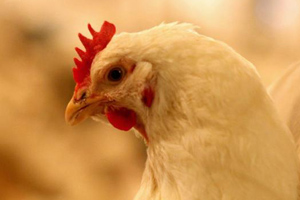EC rules against change to poultry thresholds

The European Commission’s decision not to amend thresholds for poultry and pigs or to include cattle in the Industrial Emissions Directive is a great relief for the livestock sector, but any proposed measures on manure spreading could still impact on the industry, the NFU has said.
The decision follows publication of a Commission report in response to a number of review clauses in the Industrial Emissions Directive (formerly the IPPC Directive), which has been the focus of sustained lobbying by the NFU since changes were considered in 2007. In 2010, new clauses were included to allow the Commission to review thresholds for poultry, mixed pig and poultry farms and whether there was a need to control emissions from cattle – but these will now not be implemented.
However, the report also states that the European Commission will be further investigating whether EU measures should be introduced for manure spreading and for combustion plants less than 50 megawatts, which the NFU believes may affect some glasshouses growing protected edibles. This work will be undertaken under the review of the EU Thematic Strategy for Air Pollution.
NFU chief environment adviser Dr Diane Mitchell said: “This is a great relief for the livestock sector and we are pleased to see that commonsense has prevailed. The NFU has remained convinced that the directive is ill-suited to the agriculture sector and argued that the costs of extending the scope of the directive would have far outweighed the environmental benefits.”
In response to the decision, the British Poultry Council (BPC) issued the following the statement: “BPC is very pleased with the Commission’s decision. Lowering the poultry thresholds would have brought nearly 250 additional poultry farms under the IED – many of them small seasonal turkey producers – and would have significantly increased costs to the industry. BPC contributed to an economic impact assessment on the poultry industry during the consultation period, which clearly showed that extending the scope of the IED would be detrimental to seasonal producers.”












